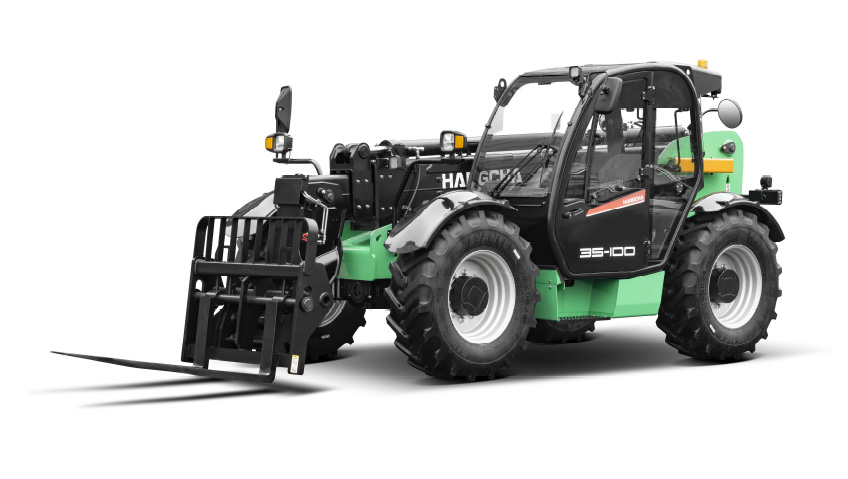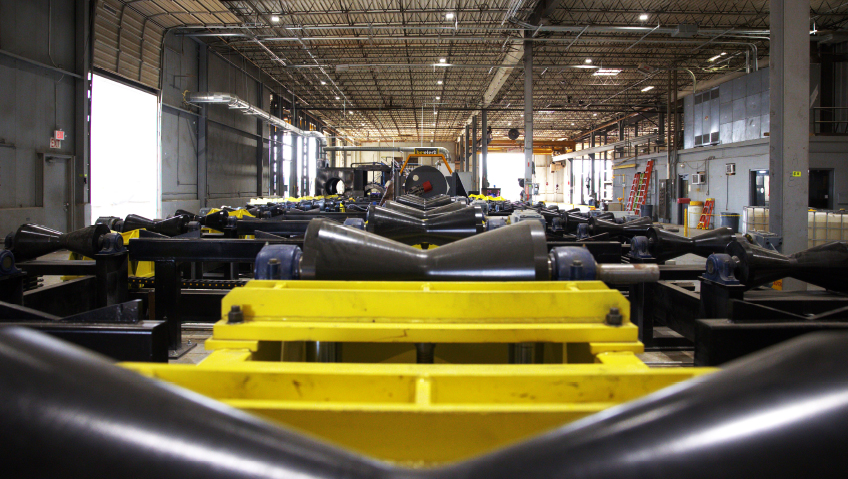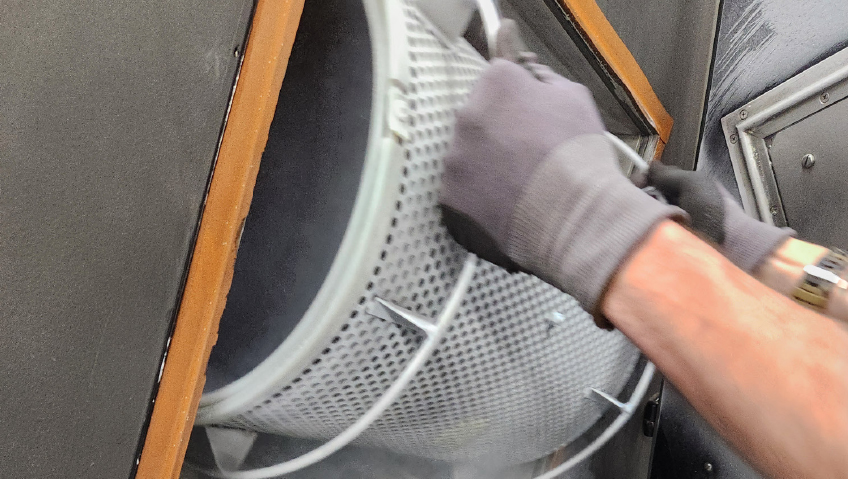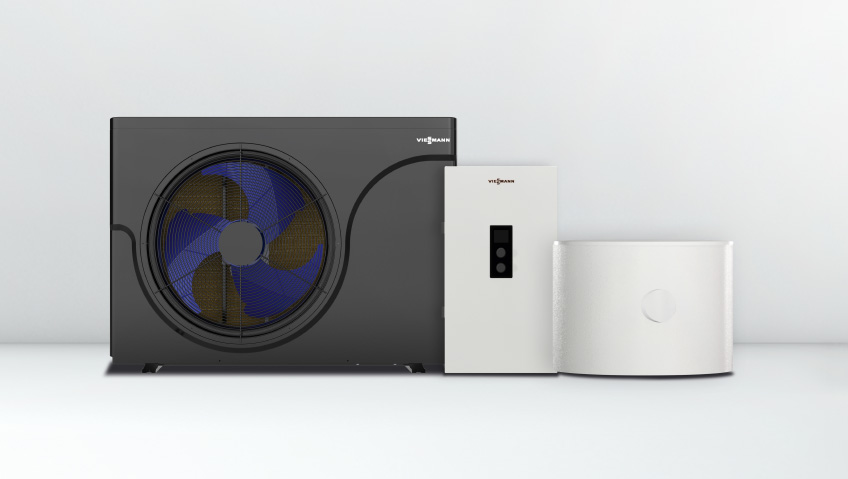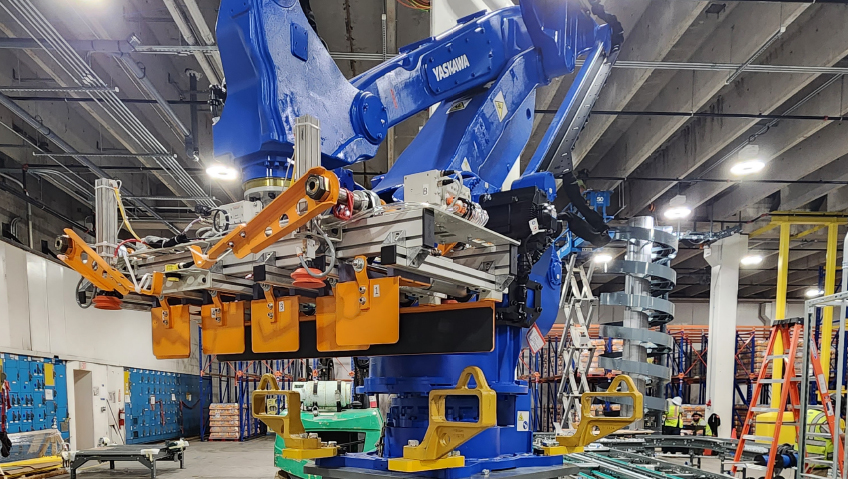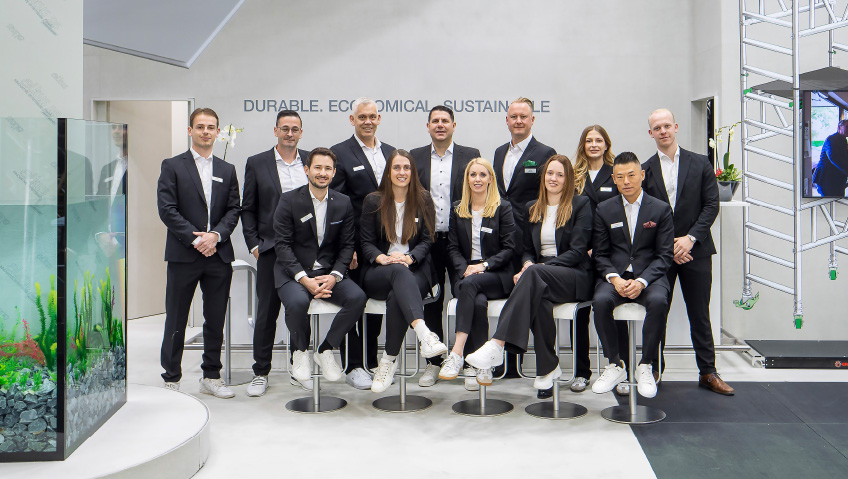A worldwide leader in the forklift industry, Hangcha Forklift Canada was among the first to introduce state-of-the-art lithium-ion battery technology to the marketplace. A decade later, the company continues to innovate, designing and manufacturing forklifts that are better for the environment, quieter and safer to operate, simple to maintain, affordably priced, powerful, and have lower operating costs than their diesel-powered counterparts.
“Everything that was possible in internal combustion is now possible with Hangcha in an electric version,” says Louanne Rioux, Sales and Marketing Director at Hangcha Forklift Canada Inc.
While the company still offers internal combustion forklifts, Hangcha is seeing tremendous growth with its XC and XE Series and the high voltage lithium ion XH Series of forklifts. Presenting customers with alternatives to propane or diesel-powered forklifts—for use inside a warehouse or factory, or outdoors on rough terrain—Hangcha has options and add-ons to meet every need.
Pioneers in lithium technology
Customers in sectors as diverse as transportation, automotive, lithium battery development, steel and wire manufacturing, fruit growing, wood products, and many more come to Hangcha Forklift Canada for its range of electric forklifts, from sitdown forklifts, narrow aisle trucks, and warehouse equipment such as pallet jacks and stackers to tow tractors and rough terrain forklifts.
Depending on the model, capacities range from 1,000kg (2,200lbs) to 48,000kg (105,000lbs), with the Electric Lithium-ion Forklifts, to the Electric Tow Tractor, which handles up to 32,000kg (70,000lbs).
“Our full lineup is essentially complete now on the electric side—even the big capacities,” says Rioux. “We have a 36,000-pound (16,329 kg) version available in lithium and go up to 27 tons (23,586 kg). Being pioneers in lithium technology definitely sets us apart.”
Selling forklifts Canada-wide, Hangcha is seeing much of its growth in the province of Ontario, including the city of Mississauga, home to its Greater Toronto Area (GTA) warehouse. “Roughly half the trucks sold in Canada are coming out of Ontario,” says John Sedlacek, Hangcha’s National Sales Director. “We are targeting a lot of major users here.”
The reason, he says, is the province’s established automotive sector and the rise of new lithium battery developments in Windsor for the electric vehicle (EV) market. Another prominent sector for Hangcha is transportation, since it operates coast-to-coast, “and we have good trucks for them,” says Sedlacek.
The Hangcha story
Over the past quarter of a century, Sedlacek has seen firsthand the transition from internal combustion diesel and propane-powered forklifts to electric, alongside the shift in customer acceptance of lithium-ion battery technology. But for years, the return on investment just hadn’t been there. This was what prompted Hangcha to turn the forklift industry on its head, becoming the first manufacturer to build a truck from the battery up and bring affordable lithium to the market.
“As far as high-voltage goes, everything is going 80-volt or higher; the higher the voltage, the faster the charge time, the longer the runtime, and there’s less stress on the componentry,” he says. “We’ve had some great success stories selling high-voltage, which I didn’t think would sell that fast, but there it is—people are willing to take the gamble.”
Sedlacek is training and encouraging his team to promote the Hangcha story across the country. This includes the founding of the parent company in 1956 as the Hangzhou Mechanical Repair Factory in Hangzhou, Zhejiang, China; how the company shifted entirely to forklifts in 1974; the creation of Hangcha America in 2017; and the launch of Hangcha Forklift Canada in 2019. Today, Hangcha is among the top eight forklift manufacturers in the world. In just the past five years, the company has established locations in the Netherlands, Thailand, Australia, Brazil, Mexico, Indonesia, Japan, Malaysia, Vietnam, and France.
Along with over 5,000 employees globally, Hangcha has a strong dealer network, selling over 200,000 forklifts every year, many of them to repeat customers. “It’s interesting how the sales cycle is going,” notes Sedlacek. “It’s a different story now—what I’m selling and how I’m training my people across Canada… We have affordable lithium now for the first time in the marketplace.”
Why lithium-ion?
There are many advantages to lithium-ion technology, including faster run times, the ability to handle 24/7 operations, and, in some cases, more power, greater torque, and more speed.
As if those factors weren’t enough, one of the most significant in everyone’s eyes is cost. The ROI is so high that—depending on how many hours the forklift is in use—every third truck is essentially free. “The more you use it, the more you’re saving,” says Sedlacek. “That’s how it works.”
Apart from cost savings, there are also environmental and safety benefits to lithium-ion. The team has received plenty of positive feedback from customers praising Hangcha’s lithium-ion forklifts, including one who said his building couldn’t handle emissions from propane-powered forklifts. The client had invested tens of thousands of dollars in an air exchange system, which produced a lot of heat. By investing in lithium-powered trucks, the client—although continuing to use propane in some cases—saw his fuel costs cut in half.
For forklift operators, there are many benefits of lithium-ion compared to internal combustion engines. It is easier to adjust speeds with lithium-ion trucks—which are fully programmable—and the trucks are cooler to operate. Another consideration is that there is no need for a battery room with lithium-ion, as is the case with heavy, lead-acid “wet cell” batteries, which can be dangerous when charging.
“That’s another advantage of going with lithium,” says Yan Lamontagne, After-sales Director at Hangcha Forklift Canada. “There’s less pollution, and it’s an advantage over lead-acid. You don’t need to have water, and it’s safe. Compared to the internal combustion trucks, there is also less noise.”
A dynamic and durable fleet
Quality, customer service, and selection are just some reasons customers keep choosing Hangcha. Continually innovating, the company is proud of all its trucks.
The XH Series High-Voltage Telehandler has a capacity of 2,500 to 3,500 kg. Its many benefits include permanent magnet synchronous motor (PMSM) technology, able to reach a 25/km/h drive speed (no load), and a maximum grade ability of 45 percent. With three steering modes and two driving modes, the XH Series High-Voltage Telehandler is a highly maneuverable 5-ton, comfortable to operate with a driver assistance system, and options including air conditioning, radio, USB charging port, and more. With its lithium iron phosphate battery pack, LED lights, and overload monitoring system, it’s safe and reliable.
Other innovative lithium-ion products in the company’s XE Series are manufactured to replace outdoor trucks and come in 1.5-ton to 5-ton versions. “The XE Series is really one of those,” says Rioux.
Hangcha is also seeing growing demand for forklifts in its lithium-ion XC Series. A four-wheel cushion tire forklift, it has a capacity of 4,000 to 6,500 pounds. With a lightweight design, faster travelling and lifting speeds, and optional energy-efficient management, the Hangcha XC Series 4W cushion tire forklift “draws on the design concepts and technological innovations of 4W forklift trucks with lithium-ion technology and cushion tires to build a lithium-ion dedicated platform for cushion tire forklift with lithium-ion technology,” says the company.
At Hangcha, innovation comes hand-in-hand with safety and efficiency, and this includes the company’s Fleet Intelligent Management System. Hangcha FIMS provides valuable real-time information and data collection about forklifts and drivers, be it a single lift or even hundreds across multiple sites. Just some benefits of 24/7 GPS monitoring include safety, preventative maintenance, lower costs, and increased productivity, as trucks are analyzed for vibration, overspeed, abnormal operation, and more.
Meanwhile, the innovative Hangcha ADAS (Advanced Driver Assistance System) provides early warning of potential hazards. With a high-precision detection rate of about 98 percent, the ADAS offers 360-degree surround sensing, lightning-fast response with monitoring every 25 milliseconds, GPS tracking, route history, AI machine learning technology, and other unique safety features.
Powering what’s next
For years, Hangcha has been renowned for its positive and supportive company culture, which means investing in its employees. “It’s part of our work-life balance,” says Lamontagne. “We don’t have a high employee turnover, and have several staff members who have been here a very long time.” Expressions of employee appreciation, including coffee breaks, free snacks in the cafeteria, team barbecues, and welcoming out-of-town guests, mean a lot. “We do spend eight hours a day together, so we try to make it an interesting environment for people to feel welcomed.”
With a focus on quality and a team whose members are all pulling in the same direction, Hangcha Forklift Canada sees a bright future, both for the business and for lithium-ion technology. Sedlacek foresees growth in sectors such as mining and continued success in the lumber sector. “Wood is becoming a huge target for us; we’ve had some great success stories,” he says, adding that Hangcha is working with a well-known pallet company and recently made a deal with a business in Vancouver’s fruit belt. “Anything that grows in the ground seems to attract our trucks.”
As industries across Canada continue shifting toward cleaner, more efficient operations, Hangcha Forklift Canada is well-positioned to lead the way. With its proven track record, commitment to innovation, and a comprehensive lineup of lithium-ion solutions, the company is redefining what forklifts can do while helping its customers achieve long-term savings and sustainability. For Hangcha, the future isn’t just electric—it’s here.

